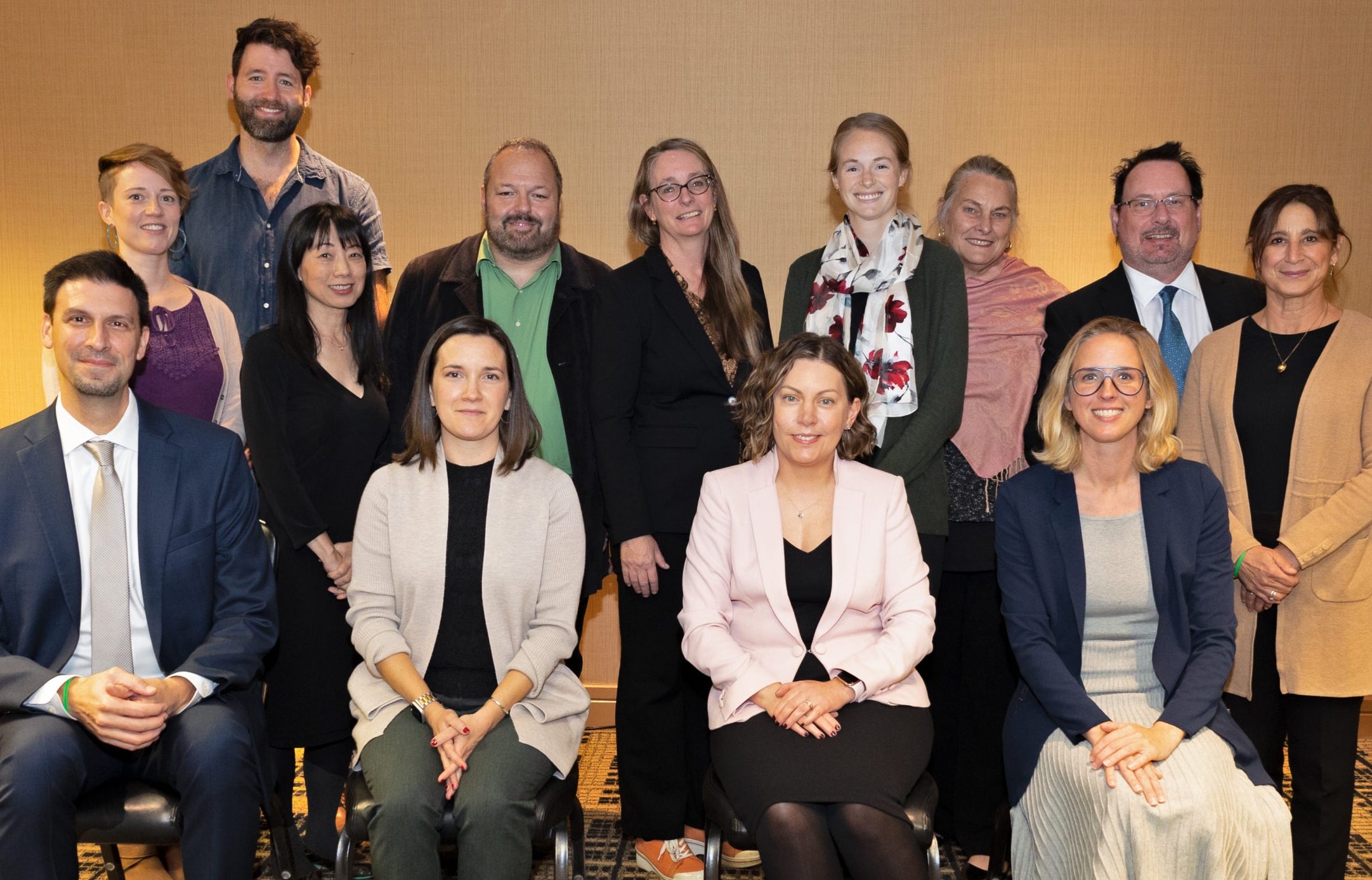American Translators Association
Events from this organizer
-
-

Certification Exam: In-Person
Novi, MI Novi, MI, United StatesYou must be a member of ATA to register for an exam. Join ATA today. All exam sittings have a maximum capacity and registrations are accepted on a first-come, first-served basis. There are no waitlists for sold-out exams, but a sold-out exam may become available if there are cancellations. Check Exam Status to see if this…
$525 -

Certification Exam: In-Person
Austin, TXYou must be a member of ATA to register for an exam. Join ATA today. All exam sittings have a maximum capacity and registrations are accepted on a first-come, first-served basis. There are no waitlists for sold-out exams, but a sold-out exam may become available if there are cancellations. Check Exam Status to see if this…
$525 -

Certification Exam: Online
OnlineYou must be a member of ATA to register for an exam. Join ATA today. All exam sittings have a maximum capacity and registrations are accepted on a first-come, first-served basis. There are no waitlists for sold-out exams, but a sold-out exam may become available if there are cancellations. Check Exam Status to see if this…
$525 -

Transcreation in Video Game Localization
Learn how to adapt creative content when localizing video games. For gamers, a video game is not just a pastime—it is an immersive experience that connects them to the story and the characters. The primary goal in video game localization is not to be rigidly faithful to the original content but to entertain the players.…
-
-

Certification Exam: Online
OnlineYou must be a member of ATA to register for an exam. Join ATA today. All exam sittings have a maximum capacity and registrations are accepted on a first-come, first-served basis. There are no waitlists for sold-out exams, but a sold-out exam may become available if there are cancellations. Check Exam Status to see if this…
$525 -

Consecutive Note-Taking Workshop
Be ready to actively participate in practice sessions designed to enhance your consecutive interpreting techniques. This interactive workshop will include a presentation of the main elements of a note-taking system for long consecutive interpreting, followed by one-on-one practice. It consists of two, two-hour sessions with a one-hour break in between. Special Notes This workshop is limited…
-

Certification Exam: In-Person
Guadalajara, Mexico Guadalajara, Jalisco, MexicoYou must be a member of ATA to register for an exam. Join ATA today. All exam sittings have a maximum capacity and registrations are accepted on a first-come, first-served basis. There are no waitlists for sold-out exams, but a sold-out exam may become available if there are cancellations. Check Exam Status to see if this…
$525 -

The Magic of Automation: AutoHotkey for Non-Programmers, Part I
Learn how automation can give you more time to focus on what you love most about your translation and interpreting business. So much of our day is spent on repetitive tasks—copying terms from a PDF document to an Excel worksheet, finding repetitions in your translation environment tool, changing capitalization, and much more. If only there…
-

Identifying Your Target Audience: Why Niche Markets Can Boost Your Interpreting Business
Learn how to define your ideal interpreting client and create a laser-focused strategy to stand out in today's saturated market. If you could define your ideal interpreting client, what would they be like? What type of customer are they? What do they specialize in? With whom do they do business? Questions like these will help…
-

Certification Exam: In-Person
Salt Lake City UTYou must be a member of ATA to register for an exam. Join ATA today. All exam sittings have a maximum capacity and registrations are accepted on a first-come, first-served basis. There are no waitlists for sold-out exams, but a sold-out exam may become available if there are cancellations. Check Exam Status to see if this…
$525 -

Certification Exam: Online
OnlineYou must be a member of ATA to register for an exam. Join ATA today. All exam sittings have a maximum capacity and registrations are accepted on a first-come, first-served basis. There are no waitlists for sold-out exams, but a sold-out exam may become available if there are cancellations. Check Exam Status to see if this…
$525 -

Certification Exam: In-Person
Houston, TX Houston, TX, United StatesYou must be a member of ATA to register for an exam. Join ATA today. All exam sittings have a maximum capacity and registrations are accepted on a first-come, first-served basis. There are no waitlists for sold-out exams, but a sold-out exam may become available if there are cancellations. Check Exam Status to see if this…
$525 -

Introduction to Website Localization
Learn the ins and outs of website localization! As the demand for website localization grows, there is a need for qualified translators who are up to the task. But many translators feel that they need more than just linguistic skills and have many questions: “Do I need to learn how to code? Do I need…
-

Certification Exam: In-Person
Charlotte, NC Charlotte, ND, United StatesYou must be a member of ATA to register for an exam. Join ATA today. All exam sittings have a maximum capacity and registrations are accepted on a first-come, first-served basis. There are no waitlists for sold-out exams, but a sold-out exam may become available if there are cancellations. Check Exam Status to see if this…
$525 -

Certification Exam: Online
OnlineYou must be a member of ATA to register for an exam. Join ATA today. All exam sittings have a maximum capacity and registrations are accepted on a first-come, first-served basis. There are no waitlists for sold-out exams, but a sold-out exam may become available if there are cancellations. Check Exam Status to see if this…
$525 -
-

ATA62 Early Registration Deadline
Whether attending in person or virtually, you will get everything you need to thrive as a professional translator or interpreter. Register by October 1 for discounted rates.
-

Beginner Tips and Tricks for Trados Studio
Learn how to maximize the basic functionality of Trados Studio and boost your efficiency! Trados Studio is the most powerful and popular CAT (computer-assisted translation) tool on the market. Learning how to use it efficiently can help you save time and allow you to focus on the creative part of your translation workflow. In this…
-

Maximizing Your ATA Directory Profile to Attract Your Ideal Clients
Learn how to stand out to your ideal translation and interpreting clients through your ATA Directory profile! ATA’s Language Services Directory is used by potential clients worldwide to find just the right translator or interpreter for their particular projects. Having a profile listing in this Directory—and the exposure it provides—are key benefits of being an…
-

Getting Started with memoQ
Learn how to get started with memoQ translator pro! Knowing how to use your translation environment tool efficiently will help you boost your productivity and leave more time for the creative part of your translation work. As a new user, you might have many questions, and what can be better than learning from an expert…
-

ATA 62nd Annual Conference
Whether attending in person or virtually, you will get everything you need to thrive as a professional translator or interpreter. Get a glimpse of ATA62!
-

Certification Exam: In-Person
Minneapolis, MNYou must be a member of ATA to register for an exam. Join ATA today. All exam sittings have a maximum capacity and registrations are accepted on a first-come, first-served basis. There are no waitlists for sold-out exams, but a sold-out exam may become available if there are cancellations. Check Exam Status to see if this…
$525 -

Board of Directors Meeting
The ATA Board of Directors Meeting will be held in Minneapolis, MN. All ATA members are invited to attend. View the Board meeting agenda Don't know how a Board meeting works? Listen to The ATA Podcast: Inside the ATA Board Room for a look at what happens.
-

Certification Exam: In-Person
Minneapolis, MNYou must be a member of ATA to register for an exam. Join ATA today. All exam sittings have a maximum capacity and registrations are accepted on a first-come, first-served basis. There are no waitlists for sold-out exams, but a sold-out exam may become available if there are cancellations. Check Exam Status to see if this…
$525 -
-

Ethics in Conference Interpreting
Learn how to approach ethical dilemmas during onsite and remote conference interpreting assignments. Both budding and experienced conference interpreters face unique ethical challenges, especially today. Best practices in conference interpreting evolve as a result of the extensive use of remote meeting technologies in the wake of COVID 19. Both onsite and online events can pose…












